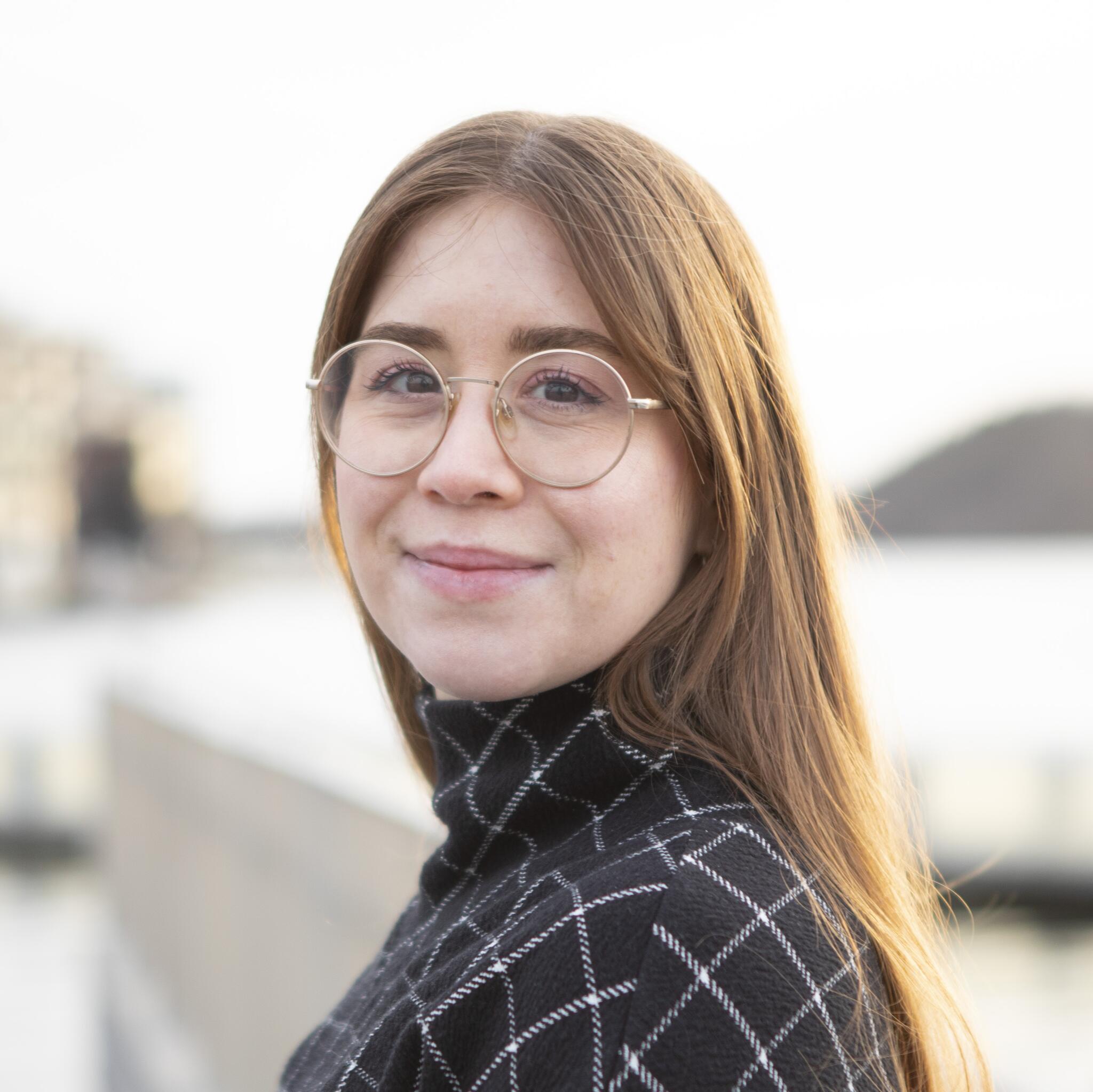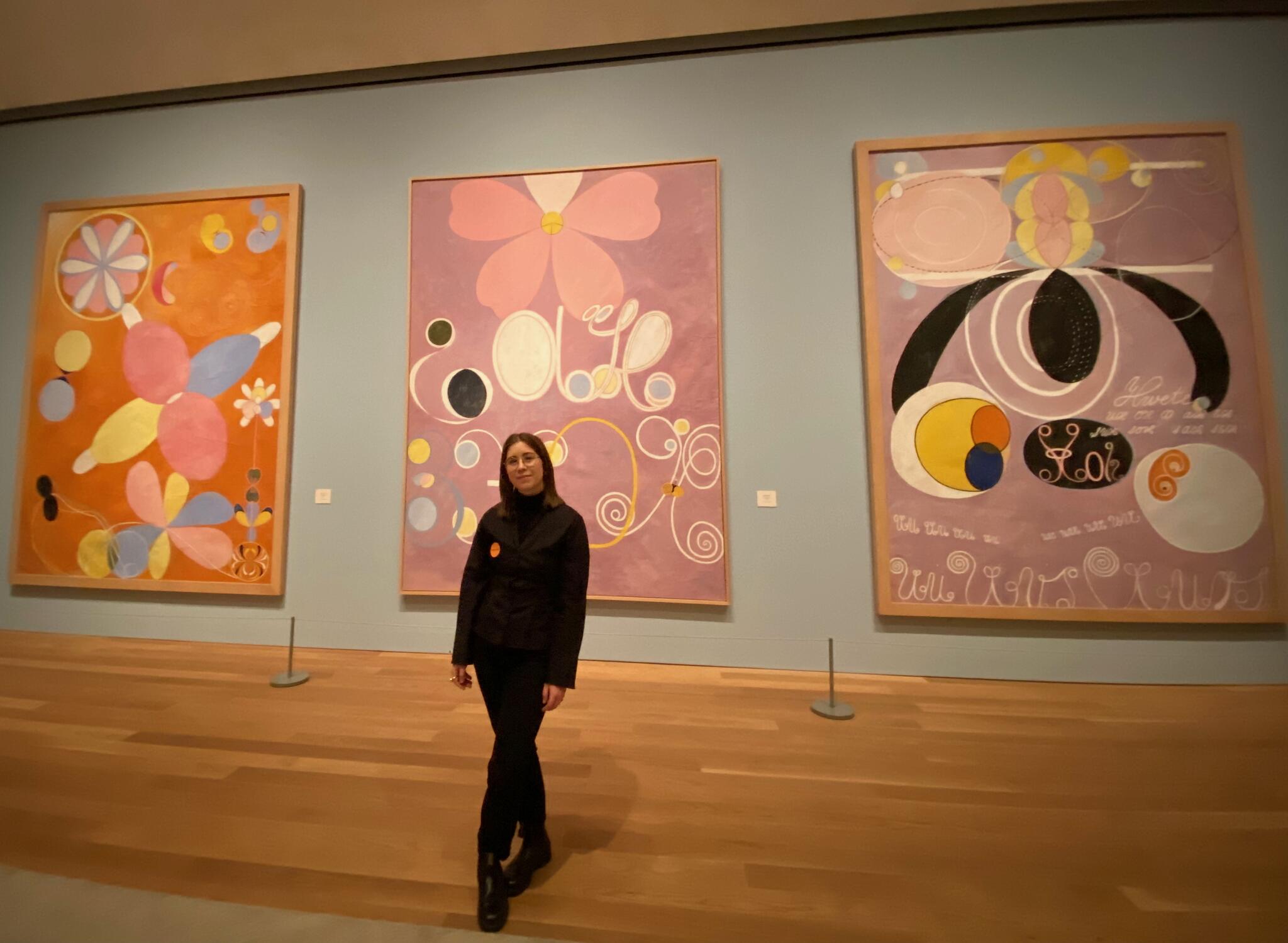 Our Alumni Stories series continues with MaryClaire Pappas (Ph.D. '22). Pappas spent her time at Queen's refining her love for art history, and followed her passion for museum work at the Munch Museum in Oslo, and New York's Museum of Modern Art:
Our Alumni Stories series continues with MaryClaire Pappas (Ph.D. '22). Pappas spent her time at Queen's refining her love for art history, and followed her passion for museum work at the Munch Museum in Oslo, and New York's Museum of Modern Art:
Why did you pursue an Art History degree?
"I took my first art history course in high school. The stories behind the artworks fascinated me, and I loved how the teacher eloquently explained how the visual culture of the past continues to influence our understanding of the world today. I found art history intriguing because the field offered a way to engage with the world that fit my thinking and the questions I was already asking about visual culture. It provided a way to question how visual culture conveys and shapes our understanding of the world and how images shape our understanding of gender and identity, questions that, as a teen, I found (and still find today) vital. I found art history a perfect fit to foster my curiosity. Along the way, many enthusiastic and encouraging professors helped cement my passion for art history, providing inspiration and the tools necessary to continue developing as an art historian. In the end, they are the reason I continued studying art history."
What career paths did you envision after graduation?
"I originally double-majored in business management and art history with the hope of working in a commercial gallery. Pretty soon, it became transparent that business was not my forte. Moreover, after completing internships in commercial galleries, I decided that was not an environment where I would thrive. After speaking with my mentors, I decided to pursue an M.A. in Art History, hoping to complete a Ph.D. later. After completing my M.A. at Queen’s, I received an offer for a temporary position at the Munch Museum, which helped me learn that I really enjoyed museum work. Therefore, while completing my Ph.D., I took on similar positions, such as working for a non-profit gallery or working to create a strategic plan for a university collection. These positions helped me learn about the art world from different perspectives and have helped me to advance my career goals by offering a skill set beyond the academic research and writing skills gained in my Ph.D. After completing my Ph.D. in 2022, I began as the Louise Bourgeoise Intern for the Department of Drawings and Prints at the Museum of Modern Art in New York. I am learning more about curation and museum research. I am not quite sure where I will land in the long run, but I will keep my options open until I find the perfect fit!"

MaryClaire Pappas at the Museum of Modern Art in New York.
What are some unexpected ways your Art History education has served you in your professional life?
"The skill I have learned through my Art History education that I am most grateful for is the skill of critical inquiry, a tool that one needs not just as an art historian but more broadly. While many of us may not choose an art history degree because we want to learn how to think critically (although it is a bonus), this skill is perhaps the most underrated skill we learn as art historians and most transferable to various professions. Learning how to look, read, think, and evaluate texts and images and what type of information they each communicate is invaluable."
What advice would you give to current students of Art History at Queen’s?
"Be open to opportunities, even those outside your original plan. So many of the positions I have taken are different from where I initially imagined myself ten years ago. However, saying yes to unexpected opportunities and shifting my career goals around what excited me at that moment opened up new pathways and taught me valuable skills along the way. I also met incredibly supportive and kind peers and colleagues along the way, without whom I would be a more lonely art historian. Also, do not be afraid to apply for that grant, internship, job, or anything else you are afraid to take a chance on because you fear being rejected. It is almost always better to apply and take a chance than never to apply at all. You are more qualified than you think you are, and often your passion and excitement for what you are learning can help get you a foot in the door. A final piece of advice: if you plan on pursuing graduate studies, take your language courses seriously! You will need these languages in the future!"